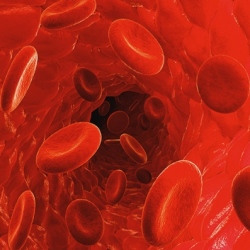
Scientists are hopeful that "smart" insulins which are undergoing trials could revolutionise the way diabetes is managed. Instead of repeated blood tests and injections throughout the day to keep blood sugar in check, a single dose of smart insulin would keep circulating in the body and turn on when needed.
Animal studies show the technology appears to work; at least in mice. Scientists plan to move to human trials soon, PNAS journal reports. Experts caution that it will take years of testing before treatments could become a reality for patients.
People with type 1 diabetes, who either do not make or cannot use their own natural insulin, rely on insulin injections to stay well. Without these, their blood sugar would get dangerously high. But injecting insulin can also make blood sugar levels dip too low, and people with type 1 diabetes must regularly check their blood glucose levels to make sure they are in the right zone.
Diabetes experts have been searching for ways to make blood sugar control easier and more convenient for patients, which is where "smart" insulins come in. There are a few different types in development, but all are designed to automatically activate when blood sugar gets too high and switch off again when it returns to normal.
